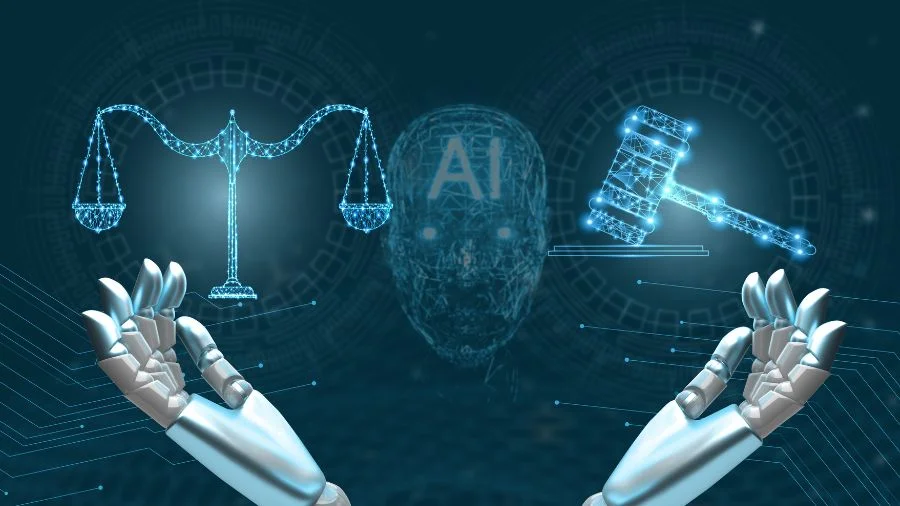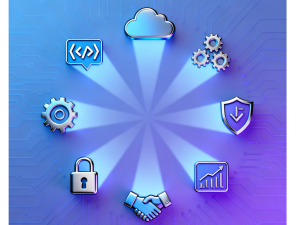Imagine getting turned down for a loan, flagged by a security system, or ranked unfairly in a job application—just because an algorithm misread your data. Welcome to the unintended consequences of biased AI.
In 2025, artificial intelligence powers everything from recruitment and credit scoring to medical diagnostics and policing. But even the smartest systems can replicate—and sometimes amplify—human bias. As AI becomes more embedded in society, understanding its ethical dimensions is not optional. It’s a responsibility every future tech professional needs to take seriously.
This isn’t just about coding—it’s about accountability. Here’s what every learner needs to know.
What Is AI Bias, Really?
AI bias happens when algorithms produce systematically unfair outcomes, often disadvantageing particular groups of people. This can stem from:
- Biased training data: If an AI learns from historical data that reflects human prejudice, it may continue those patterns.
- Poor feature selection: Variables chosen to predict outcomes may correlate with race, gender, or other sensitive traits.
- Lack of diverse perspectives: Homogeneous teams may not anticipate how systems can fail across cultures, demographics, or use cases.
In short, AI doesn’t invent bias. It learns it—from us.
Real-World Examples of AI Bias
To make it tangible, here are a few infamous cases that illustrate the problem:
1. Hiring Discrimination
A global tech company developed an AI to sort resumes but scrapped it when they found it favoured male candidates over female ones. Why? The training data came from ten years of internal hiring history—mostly men.
2. Facial Recognition Failures
Some facial recognition systems have shown error rates of up to 35% when identifying women of colour. That’s not just inconvenient—it’s dangerous when used in law enforcement.
3. Healthcare Algorithms
A study found that an algorithm used in hospitals to determine patient care needs was less likely to refer Black patients for extra care—even when they had similar health outcomes as white patients.
These are just the tip of the iceberg.
Why It Matters to Future Developers
As a learner or aspiring tech professional, you might think, “But I’m not building the next big AI system yet.”
Here’s why it still matters:
- You will influence the data, design, or delivery of tech tools. Whether you’re working in UX, backend, or project management, your choices affect outcomes.
- Companies want ethically literate developers. With increasing regulation and public scrutiny, ethical awareness is a hiring asset.
- You’ll build trust. Ethical AI earns public trust. Biased AI damages reputations and careers.
Being technically skilled is no longer enough. You also need to be ethically aware.
How Bias Creeps In
Bias can enter the AI development process at multiple stages:
- Data Collection: Who is represented in the dataset? Who isn’t?
- Labeling: Are data annotations consistent, accurate, and culturally sensitive?
- Model Training: Does the algorithm optimize for fairness, or just accuracy?
- Testing & Deployment: Are edge cases and underrepresented users tested?
Recognising these entry points helps you stop bias before it becomes baked into the system.
Building Responsible AI: What Learners Can Do
The good news? You can start learning how to build better, fairer systems right now.
1. Educate Yourself on Ethics Frameworks
Familiarise yourself with guidelines from:
- The IEEE Global Initiative on Ethics of Autonomous Systems
- Google’s AI Principles
- The EU AI Act
These aren’t just buzzwords. They shape how real-world products are built.
2. Use Diverse Datasets
When working on projects or models, strive for inclusive data. Seek out open datasets that represent different demographics, geographies, and contexts.
3. Understand Fairness Metrics
Learn how to evaluate bias using fairness metrics like:
- Demographic parity
- Equal opportunity
- Predictive equality
Each has strengths and trade-offs. Knowing how to pick the right one matters.
4. Audit Your Models
Practice auditing your own models during hackathons or coursework. Tools like IBM’s AI Fairness 360 or Google’s What-If Tool can help.
5. Ask More Questions
Before you hit deploy, ask:
- Who might this system unintentionally harm?
- Are there blind spots in the training data?
- How would this perform on someone very different from the ‘average user’?
Ethical thinking starts with good questions.
What the Future Holds: Ethics as a Career Booster
Increasingly, ethical awareness isn’t just the right thing to do—it’s a skill that sets you apart. Here’s how:
- Employers are prioritising it. Tech giants and startups alike are investing in responsible AI teams.
- It opens new roles. Think AI Ethicist, Algorithm Auditor, or Responsible AI Lead.
- It protects your work. Ethical foresight helps you avoid reputational risks and regulatory penalties.
If you want to future-proof your career, learn to think beyond code.
Final Thoughts: Start Small, Stay Aware
You don’t have to become an AI philosopher overnight. But every tech learner should understand how bias works and how to spot it.
Start by reading real-world cases. Take an ethics course. Use fairness tools in your side projects. And most importantly, keep people at the centre of your code.
At Ascend Education, we believe tomorrow’s IT leaders must be both skilled and principled. That’s why our courses go beyond technical know-how to include the values that build a better tech future.





